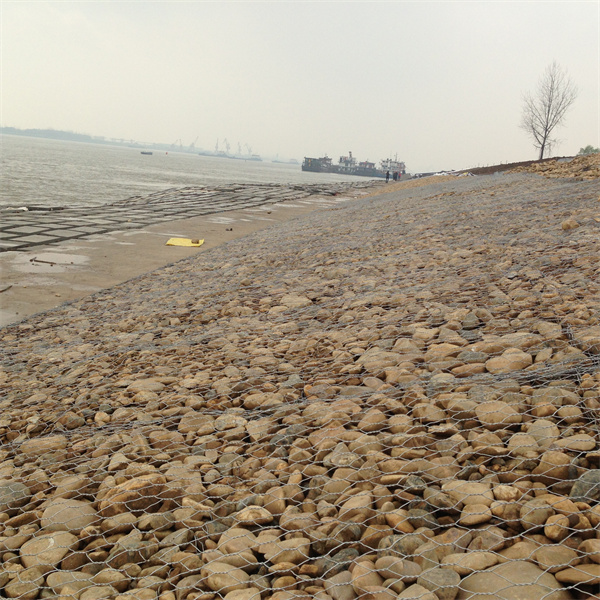Desemba . 05, 2024 17:57 Back to list
Choosing the Ideal Stone for Constructing Durable Gabion Walls
The Best Stone for Gabion Walls A Comprehensive Guide
Gabion walls have become increasingly popular in modern landscaping and civil engineering. These structures, made by filling wire mesh cages with various materials, offer numerous benefits, including aesthetic appeal, erosion control, and enhanced landscaping. One of the most critical components of a gabion wall is the stone used to fill the cages. Choosing the right stone not only impacts the wall's structural integrity but also affects its appearance and longevity. In this article, we’ll explore the best stones for gabion walls and the factors to consider when selecting them.
Characteristics of Good Gabion Stones
When selecting stones for gabion walls, several key characteristics come into play
1. Durability The stones should be robust enough to withstand weather elements and mechanical stresses. Hard rocks, like limestone, granite, and basalt, are excellent choices due to their resistance to wear and degradation.
2. Size and Shape Stones used in gabions typically range from 4 to 12 inches in diameter. This size ensures that the stones can effectively fill the gabion cages while allowing for adequate drainage. Irregularly shaped stones provide better interlocking and stability, which helps prevent movement and shifting over time.
3. Weight Heavier stones provide better stability and support. A denser rock would ensure that the gabion wall remains in place, especially in areas subject to flooding or heavy rainfall.
Top Choices for Gabion Wall Stones
1. Limestone Limestone is one of the most popular choices for gabion walls. It is widely available, relatively inexpensive, and offers good durability. Its natural allure blends well with many landscapes. The yellowish-gray color of limestone can enhance the overall aesthetics of a garden or construction area.
2. Granite Known for its incredible strength, granite is another excellent option for gabion walls. Its unique patterns and colors can be visually striking, making it an attractive choice for maximum aesthetic appeal. Granite’s resistance to weathering ensures a long lifespan, making it a worthwhile investment.
best stone for gabion walls factory

3. Basalt A volcanic rock, basalt is dense and heavy, making it an ideal choice for gabion walls in areas susceptible to erosion. Its dark color provides a modern aesthetic and can create a chic look in contemporary designs.
4. River Rock For those looking for a more natural, rounded appearance, river rock is an attractive option. The smooth stones create a more organic look and promote a natural water drainage system. However, they may not be as stable as angular stones, making it crucial to use them in areas with less risk of erosion.
5. Slate Slate is known for its unique layering and rich colors. It can add textural variety and a sophisticated touch to gabion walls. While slate is slightly less durable than granite or basalt, it is still a commendable choice due to its aesthetic value.
Considerations for Selecting Gabion Stones
While evaluating these stones, consider the following factors
- Local Availability Sourcing stones locally can significantly reduce costs and transportation efforts. Explore local quarries or stone yards to find suitable options.
- Environmental Impact When selecting stones, take into account the environmental consequences of mining and transportation. Choosing sustainably sourced materials can minimize your ecological footprint.
- Cost Prices for gabion stones can vary based on the type and source. It's essential to establish a budget to guide your selection process without compromising quality.
Conclusion
Gabion walls are an innovative and functional addition to any landscape. Selecting the right stone is vital to achieving the desired durability and aesthetic appeal. Limestone, granite, basalt, river rock, and slate are all excellent materials to consider, each with its unique benefits. By understanding the characteristics and considerations for gabion stones, you can create a beautiful and sturdy structure that will last for years to come. Whether you’re building a retaining wall, a decorative feature, or a boundary, the right choice of stone will ensure your gabion wall stands the test of time.
-
Why PVC Coated Gabion Mattress Is the Best Solution for Long-Term Erosion Control
NewsMay.23,2025
-
Gabion Wire Mesh: The Reinforced Solution for Modern Construction and Landscape Design
NewsMay.23,2025
-
Gabion Wall: The Flexible, Seismic-Resistant Solution for Modern Landscaping and Construction
NewsMay.23,2025
-
Gabion Wall Solutions: The Durable, Decorative, and Affordable Choice for Every Landscape
NewsMay.23,2025
-
Gabion Basket: The Durable and Flexible Alternative to Traditional Retaining Walls
NewsMay.23,2025
-
Gabion Basket: The Proven Solution for Slope Stability and Flood Control
NewsMay.23,2025
-
Versatility of Chain Link Fence Gabion
NewsMay.13,2025






